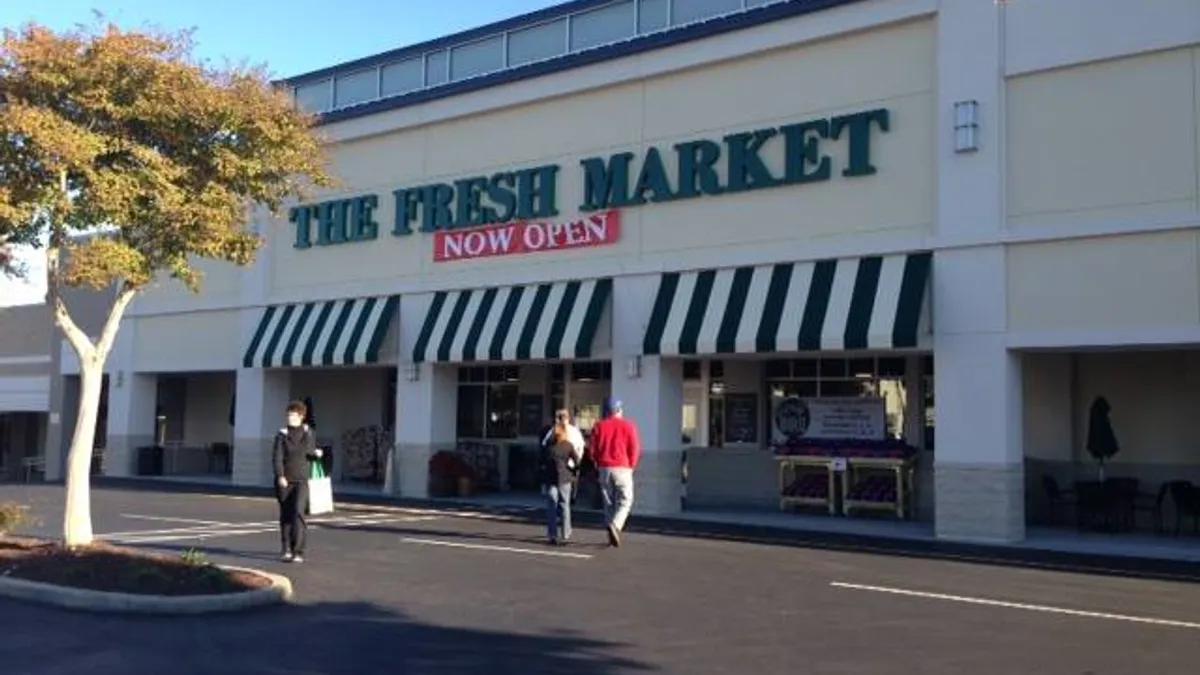Dive Brief:
- CEOs Ian McLeod of Southeastern Grocers and Rick Anicetti of The Fresh Market likely left their posts due to “overwhelming competition” from the likes of Lidl and the lack of resources they had to fight it, Strategic Resource Group’s Burt P. Flickinger III told Progressive Grocer in an interview.
- The Fresh Market, Flickinger noted, has poor store designs and promotional programs. It also hasn’t spent enough money to realize Anicetti’s vision of large-scale remodels and an overhaul of center store departments.
- Flickinger offered a similar assessment of Southeastern Grocers, though he expressed confidence in interim CEO Anthony Hucker’s abilities, citing improvements he brought about during his tenure at Schnucks.
Dive Insight:
The resignation of two grocery CEOs in the same region of the country — and within the same week, no less — raises some serious questions about the competitive threats supermarkets are facing these days.
The southeast region of the U.S., in particular, has become a hotbed of activity. German discounter Lidl has grabbed headlines lately, but a few other notable chains are making inroads as well, including Publix, Wegmans and Sprouts Farmers Market. The region, as Flickinger told Progressive Grocer, is “the most overstored market in the country.”
The area offers attractive real estate and demographic advantages. To make money, though, grocers need to spend money. That’s what The Fresh Market and Southeastern Grocers haven’t been able to do — or at least not in the amounts needed to truly be competitive.Anicetti, according to Flickinger, had a vision for revamping The Fresh Market locations with a focus on the center of the store, but owner Apollo Capital never gave him the chance to fully realize it.
Ian McLeod invested in price cuts, a private label revamp and store remodels. But this wasn’t enough to measurably improve Winn-Dixie and Bi-Lo — both of which struggled mightily with sales volume and have been through bankruptcy in the past.
While Bi-Lo and Southeastern are reigning in expenses, other grocers are spending aggressively. Food Lion, which is owned by Ahold Delhaize, is performing market-by-market remodels centered on fresh departments and bringing down prices. The company spent $178 million to remodel 93 stores in the Greensboro, NC market last year, and another $110 million in the super-competitive Richmond market this year.
A big factor here is private equity ownership, which has increased over the past decade. Firms like those that run The Fresh Market and Southeastern Grocers specialize in improving bottom lines through cost cutting and efficiency measures. They are notoriously reluctant to invest in long-term improvements, and often are looking to turn grocers around and sell them within several years’ time.









